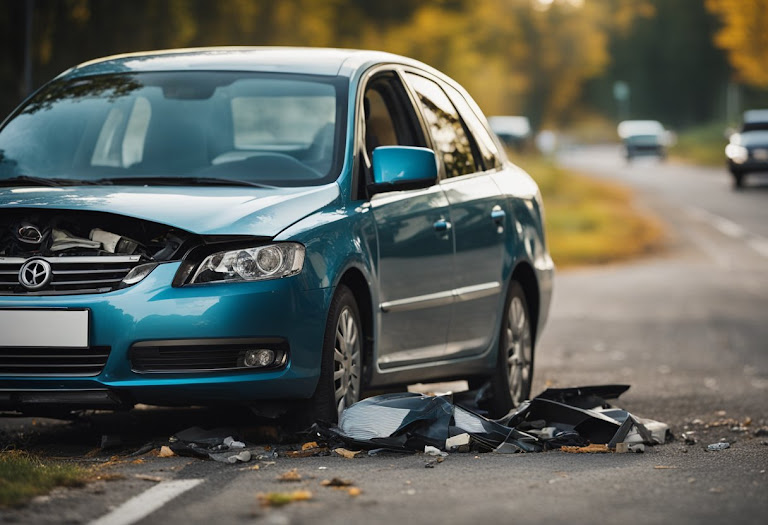
Why is Drunk Driving So Dangerous
Drunk driving remains a significant threat on the roads, leading to countless accidents each year. Alcohol impairs critical abilities such as reaction time, decision-making, and coordination, making it incredibly hazardous to operate a vehicle. When drivers are under the influence, their likelihood of making errors increases, endangering both themselves and others.
The consequences of drunk driving extend beyond accidents, often resulting in severe injuries or fatalities. Legal repercussions, such as fines, license suspensions, and imprisonment, further illustrate the seriousness of this issue. These outcomes not only affect the individuals involved but also have lasting impacts on families and communities.
Public awareness campaigns and strict laws aim to deter this behavior, yet the problem persists. Understanding the risks and promoting responsible behavior can help reduce these preventable tragedies. Diving deeper into the dangers and consequences associated with drunk driving, can change the future of safety on roads.
The Dangers of Drunk Driving
Driving under the influence impairs essential skills required for safe driving. Alcohol affects cognitive abilities, slowing reaction times and reducing decision-making capabilities. This results in a higher likelihood of accidents.
Vision impairment is another significant risk. Alcohol consumption can lead to blurred vision and difficulty in judging distances. This makes it challenging to respond to sudden changes on the road.
Coordination loss is a critical factor. Alcohol affects motor skills, making it difficult to steer or brake effectively. Slurred speech, unsteady movement, and impaired balance are common signs of intoxication that translate onto the road.
Legal consequences serve as a deterrent, but the reality remains severe. Arrests can lead to fines, licenses being revoked, and possible jail time. Social and financial impacts extend beyond the individual to families and communities.
Public awareness campaigns aim to reduce incidents by promoting designated drivers and alternatives like ridesharing services. These steps can significantly mitigate risks and promote safer road environments.
In summary, the dangers of driving under the influence are clear. From impaired judgment to the risk of fatal accidents, the consequences are profound.
Impairment of Motor Skills and Judgment
Driving while influenced by alcohol significantly impairs crucial driving skills and the ability to make sound decisions. This increases the risk of accidents and poses a danger to the driver and others on the road.
Effects on Reaction Time
Alcohol consumption leads to slower reaction times. This delay can prevent a driver from responding promptly to sudden changes, such as a pedestrian crossing or another car stopping abruptly. The central nervous system is impacted, causing messages from the brain to take longer to reach muscles. Delayed reactions in high-speed environments are particularly perilous. Quick decisions are essential for safety, but alcohol also clouds judgment, leaving individuals less capable of evaluating their surroundings.
Compromised Coordination and Control
Drunk drivers experience severely compromised coordination and control. Basic tasks such as steering, braking, and maintaining lane position become challenging. Alcohol affects the cerebellum, the brain area responsible for coordinating movement, leading to issues with hand-eye coordination and balance. This increases the likelihood of swerving, driving at inappropriate speeds, and not noticing critical traffic signals. The loss of physical control due to impaired coordination can result in collisions, putting everyone nearby at risk.
Legal Consequences of DUI
Offenders face various penalties, including the suspension of driving privileges, monetary fines, and possible imprisonment. A Miami DUI lawyer can provide essential guidance through these complex legal processes.
License Suspension and Revocation
When a person is convicted of DUI, one of the primary penalties is the suspension or revocation of their driver’s license. This penalty can significantly impact an individual’s daily life, limiting their ability to commute to work, school, or other essential activities. The duration of a license suspension often depends on factors such as previous offenses and blood alcohol concentration at the time of the arrest. In Miami, for instance, first-time offenders might face a license suspension for several months, while repeat offenders could experience longer revocation periods. Engaging a professional, like a Miami DUI lawyer, can provide crucial assistance in navigating the legal system and possibly mitigating these penalties.
Fines and Imprisonment
Another serious consequence of a DUI conviction is the imposition of fines and potential imprisonment. The financial penalties can vary, with fines for first-time offenders different from those given to repeat violators. These fines can be substantial, creating significant financial burdens. Imprisonment is a possibility, especially for those with multiple DUI convictions. The length of the jail sentence will depend on the jurisdiction and the specific circumstances of the case. Engaging a Miami DUI lawyer may help in negotiating plea deals or minimizing jail time, ensuring the legal rights of the accused are protected throughout the judicial process.
Long-Term Effects on Drivers
Drunk driving carries significant long-term consequences. Drivers may face legal challenges, including ongoing criminal records and escalating insurance costs. These consequences extend beyond initial penalties.
Criminal Record Implications
A conviction for drunk driving often results in a permanent criminal record. This can affect employment opportunities, as many employers conduct background checks. A driver might find themselves ineligible for certain jobs, especially those requiring transportation responsibilities or higher security clearance.
The presence of a DUI on a criminal record may also lead to visa and immigration issues. Traveling to certain countries might become complicated or even restricted. Consulting a legal professional, like a Miami DUI lawyer, can help navigate these challenges and possibly explore options for record expungement.
Insurance Penalties and Costs
Insurance premiums usually spike sharply for those convicted of drunk driving. Providers often label these drivers as high-risk, leading to increased monthly premiums. In some cases, insurers may cancel the policy outright, forcing the individual to find more expensive alternatives.
Drivers might also be required to file an SR-22 form, certifying the carrying of minimum insurance coverage. This requirement is both a financial and administrative burden, as it typically remains in effect for several years. Enlisting the help of insurance experts can provide guidance in managing these complex insurance landscapes effectively.
Preventive Measures and Safe Driving Practices
Preventing drunk driving involves raising community awareness and the diligent work of law enforcement. Each plays a critical role in ensuring safer roads and reducing alcohol-related incidents.
Community Awareness Programs
Community awareness programs are essential tools in combating drunk driving. They involve educational campaigns that highlight the dangers associated with impaired driving. These initiatives often include school presentations, media campaigns, and advertisements to reach a broad audience.
Public forums and workshops can encourage community dialogue, helping to reinforce the message. Local organizations, partnering with national campaigns like Mothers Against Drunk Driving (MADD), have been effective in spreading awareness. Collaborative events, such as safe driving workshops, are designed to educate individuals about the consequences and legal repercussions of drunk driving.
Role of Law Enforcement
Law enforcement agencies play a pivotal role in preventing drunk driving through targeted operations and strict enforcement of driving laws. Sobriety checkpoints are strategically set up to identify and deter impaired drivers, making roads safer for everyone.
Regular patrols and traffic stops also contribute to the reduction of drunk driving incidents. Officers undergo specialized training to recognize signs of impairment. Breathalyzer tests and other technological tools are employed to gather evidence.
Role of Legal Representation in DUI
Legal representation in DUI cases plays a critical role in determining the outcome for the accused. Effective representation can help reduce penalties, possibly dismiss charges, and guide the defendant through complex legal processes.
Hiring a DUI Attorney
Hiring a qualified DUI attorney is crucial. They offer specific knowledge and experience that a general lawyer may not possess. In Miami, a DUI lawyer understands local laws and court systems, which can greatly affect the case’s outcome. Potential clients should verify the attorney’s experience with DUI cases, including their success rates.
Costs for legal representation can vary widely based on the case complexity and the lawyer’s reputation. Choosing the right legal representation often influences several factors:
Penalty reductions
Case dismissals
Lesser charges
The Defense Process in DUI Cases
The defense process starts with evidence review, often involving police reports, breathalyzer accuracy, and witness statements. A skilled attorney identifies any legal errors in the arrest procedure or testing process.
DUI lawyers may negotiate plea deals to reduce sentences or seek alternative sentencing programs. Throughout this process, a Miami DUI lawyer helps the accused navigate the system efficiently. Knowledge of local legal practices is an advantage, providing the defendant with tailored defense strategies.
Regular communication between the attorney and client ensures that all options are considered. The attorney’s role is vital in presenting a well-prepared defense.
Recovery and Reinstatement
After a drunk driving offense, individuals often face various challenges on the road to recovery and reinstatement. Educational programs play a vital role in preventing future offenses, while legal processes focus on restoring driving rights.
Educational Programs for Offenders
Educational programs aim to reshape attitudes towards drunk driving. These courses often cover topics such as alcohol’s impact on the brain, legal consequences, and safe driving practices. Typically, participation is mandatory after a DUI conviction in many locations, including Miami. Such programs help offenders understand the severity of their actions.
Restoring Driving Privileges
The process of getting back one’s driving privileges often involves several steps. After fulfilling court mandates, offenders might need to meet specific criteria, like completing educational courses and paying fines. State laws, including those in Florida, can require proof of financial responsibility through higher insurance premiums or special insurance policies.
Reinstatement might also involve a probationary period where driving is restricted. Offenders may need to install ignition interlock devices to ensure vehicles are not operated while intoxicated. Miami DUI lawyers can assist offenders in navigating these legal requirements, helping them regain their rights.
The post Why is Drunk Driving So Dangerous appeared first on My Car Heaven.

